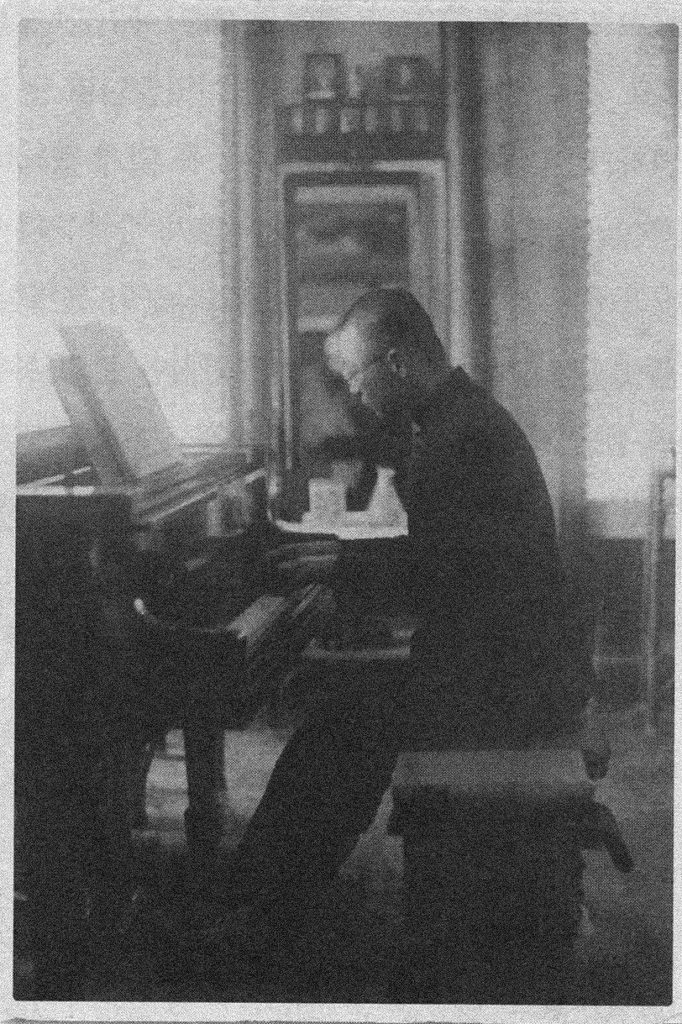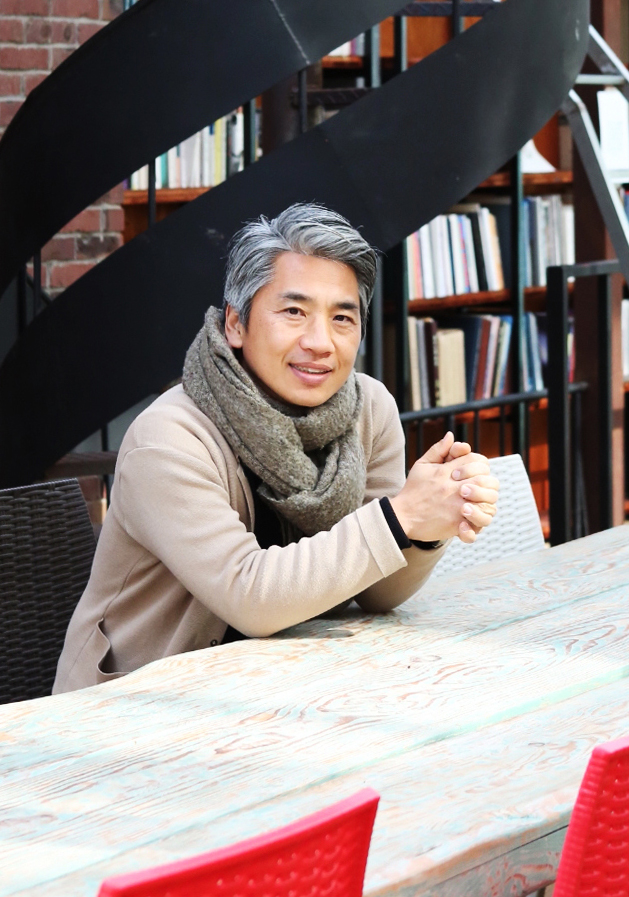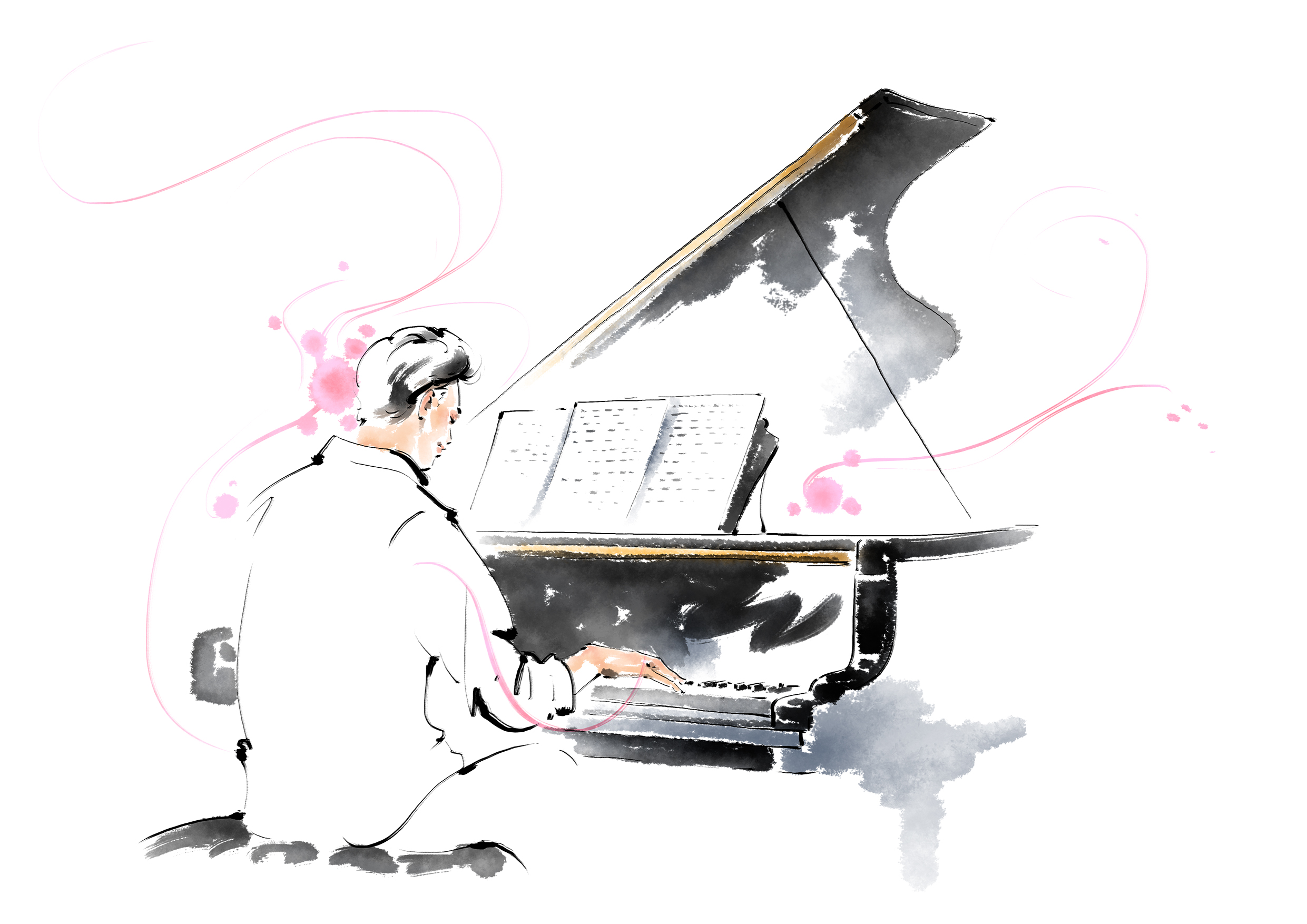Forgotten at Home, Famous Abroad
Gwangju’s Jeong Chu
Interview by Jeong Jiyeon.
This article is the first in a series of articles designed to shed light on the life of a musician born in Gwangju, who has been forgotten in his hometown – a Korean who migrated abroad and got caught up in the turbulent history of post-WWII Korea. — Ed.
Jeong Chu, who came to be known as the “Tchaikovsky with black hair,” was born in Gwangju in 1923, when Korea was under Japanese colonial rule. As a student, he was expelled from Gwangju West Middle School in 1938 for using the Korean language. After a number of twists and turns, he finally transferred to Yangjeong High School in Seoul and graduated from there. The Gwangju News has been fortunate to be able to meet with Jeong Heon-ki, a relative of the late Jeong Chu for an interview. Here we present the first part of that interview.

Gwangju News (GN): Thank you, Mr. Jeong, for granting us this interview. First, please introduce yourself to our readers.
Jeong Heon-ki: All right. My name is Jeong Heon-ki. I work as a culture and arts planner, and also operate the Horanggasi-namu Hill Guesthouse (호랑가시나무언덕 게스트하우스) in Yangnim-dong. As a local planner, I have created a platform aiming to transform Yangrim-dong into a cultural village. Six years ago, I founded Art Zoo, a culture and arts corporation, that manages the houses in the former Yangnim-dong missionary compound, and I opened another cultural center to support local artists – Horanggasi-namu Creation Center.
GN: We would like to ask you about the composer Jeong Chu (정추). What is your relationship with him?
Jeong Heon-ki: Jeong Chu was my grandfather’s cousin. Since I was young, I have heard stories about our relative who lived in Russia, a man who I had never met. My family did not know that he had become such a famous person. Then, in 2008, when a TV station made a documentary about Jeong Chu, we learned a little more about him.
GN: Please tell our readers more about Jeong Chu, the composer.
Jeong Heon-ki: First, Jeong Chu studied music at the Moscow Conservatory in Russia in the 1950s as the fourth student to study directly under Tchaikovsky. He was also the first person to get a perfect score for his graduation work, “The Motherland,” and since then he has been called “The Black-Haired Tchaikovsky.”

GN: At that time, it was unusual to study abroad. How did he go to Russia to study?
Jeong Heon-ki: For a better understanding of the life history of Jeong Chu, we cannot leave out the story of his elder brother Jeong Jun-chae, formerly known as the father of the North Korean cinema. Jun-chae first went to study abroad in 1939 in the cinema department at Nihon University in Japan, and then in 1941, his younger brother Chu went to study in the composition department at the same university. Both were actively working as film directors and composers, and after liberation in 1945, they received an offer to shoot a documentary in Pyeongyang. At that time, Pyeongyang had an advanced performing arts system with five grand theaters, so not only the two of them, but also other outstanding artists from today’s South Korea went there. Jun-chae was the first to go to North Korea, in 1945, followed by his brother Chu in 1946. Neither of them ever returned to their hometown again.
GN: What happened in Pyeongyang?
Jeong Heon-ki: Jeong Jun-chae continued to film movies while running the Chosun Film Studio, and Jeong Chu served as dean at Pyongyang Music Academy. Then, at the end of the Korean War in 1953, he was selected as a state scholarship student by the North Korean government and went to the Moscow Conservatory of Music in Russia (then the Soviet Union). At that time there was a movement against the idolization of Stalin (who had led the Soviet Union to victory in World War II) that led to a de-Stalinization process taking place in Russia after Stalin’s death.
Inspired by the movement in Russia, Jeong Chu, along with his friends also demonstrated against the idolization of North Korea’s founder, Kim Il-sung, thereby giving up any hope of returning to Pyeongyang. They instead sought political asylum in the Soviet Union. Upon learning of the situation, North Korea issued an order to summon the ten artists they had dispatched, including the Jeong brothers. Among the artists who were sent back to Pyeongyang was the older brother, Jeong Jun-chae, and upon arrival all of them were purged or killed. Jeong Chu applied for asylum to the Soviet authorities and was deported to Almaty, Kazakhstan.
(To be continued next issue.)
Photographs courtesy of Jeong Heon-ki.
The Interviewer
Jeong Jiyeon studied piano in university and is now working as a coordinator at the Gwangju International Center. She spends her free time in bed with her best friends, Netflix and YouTube.





